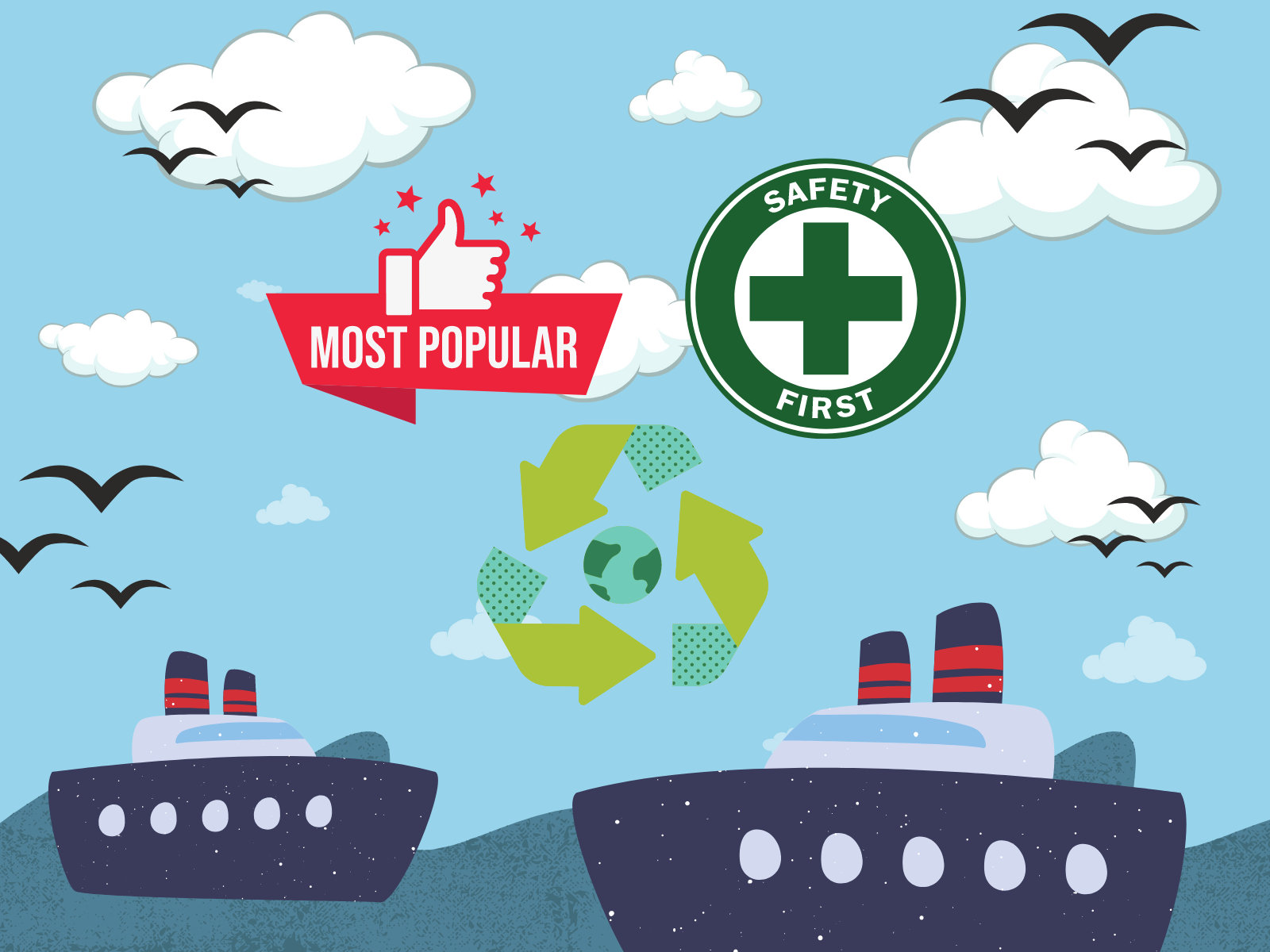Following on from last week's blog we'll be continuing to look at how the landscape of cruising has evolved since the early 20th century.
Environment
The cruise industry has made great strides in acknowledging its environmental impact and implementing measures to reduce its ecological footprint. Modern cruises predominantly rely on liquified natural gas (LNG) which reduces nitrogen oxides by 85% compared to the traditional marine fuels that were used from the 1900's up until 2018. Sewage treatment was only recently introduced in the 1970's, prior to which older cruise ships would dispose of untreated waste directly into the ocean. Modern ships waste systems are able to remove harmful components from the wastage before discharge.
Furthermore, in line with increasing environmental awareness, the cruise industry has taken proactive steps to combat the issue of single-use plastics. Recognizing the detrimental impact of these materials on marine ecosystems, many modern ships have begun replacing single-use plastics with sustainable alternatives. From biodegradable utensils to refillable water bottles, cruise lines are making conscious efforts to reduce plastic waste and promote a more eco-friendly cruising experience. By prioritizing sustainability, these initiatives not only benefit the environment but also contribute to a more responsible and mindful approach to travel.
Health & Safety Measures
Aboard ships in the early 20th Century, the medical facilities were very basic, often limited to a small infirmary with an individual physician and nurse. Due to the lack of medical equipment and supplies, and serious medical conditions often needs the sip to be diverted to the nearest port.
The shift to better medical care stemmed from the surge in popularity of cruising as a vacation choice in the 1970s, which lead to a greater demand for better on-board medical services. Nowadays, modern cruise ships are equipped with fully functional medical centres which are staffed with certified doctors and nurses.
Enhanced quarantine and isolation facilities have been put into place to mitigate the spread of infectious diseases. This has been particularly prevalent over the last 4 years, since the break out of COVID-19 nearly toppled the cruise industry.
Popularity
Cruising has experienced a surge in popularity over the years, attracting a diverse array of travellers. Gone are the days of the stereotype that only elderly retirees or newlyweds embark on cruises. With a wide variety of destinations to choose from, ranging from tropical paradises to historic cities, cruises provide the opportunity to explore multiple locations in a single trip. The allure of unpacking only once and waking up in a new destination each day is a major draw for many travellers. Over the last decade alone, the average age has dropped from 60 to 50. The accessibility of cruises has never been greater.
What was the total number of cruise passengers for each three-decade period?
- Between 1900-1930, approximately 4.69 million people set sail on cruises.
- From 1930-1960, an estimated 13.06 million travellers embarked on a cruise.
- Between 1960-1990, a staggering 120 million individuals took to the seas for a cruise experience.
- Finally, from 1990-2020, a remarkable 460 million people enjoyed the wonders of cruising.
Conclusion
Similarly to Part One, we can see that the cruise industry has undergone significant changes since the start of the 20th Century, particularly in terms of environmental sustainability, health measures, and the growing popularity of cruising amongst a diverse range of travellers. From the adoption of more sustainable fuels, to the addition of medical facilities and quarantine protocols, cruises continue evolve to meet the needs and expectations of modern travellers. As we look forward to the future, it's clear that the industry will continue to innovate and adapt to ensure a safe, enjoyable, and sustainable experience for all passengers. If you have not read had a read through part one, please visit: https://www.theiceway.com/blog/the-evolution-of-cruises-part-one






Leave a Comment